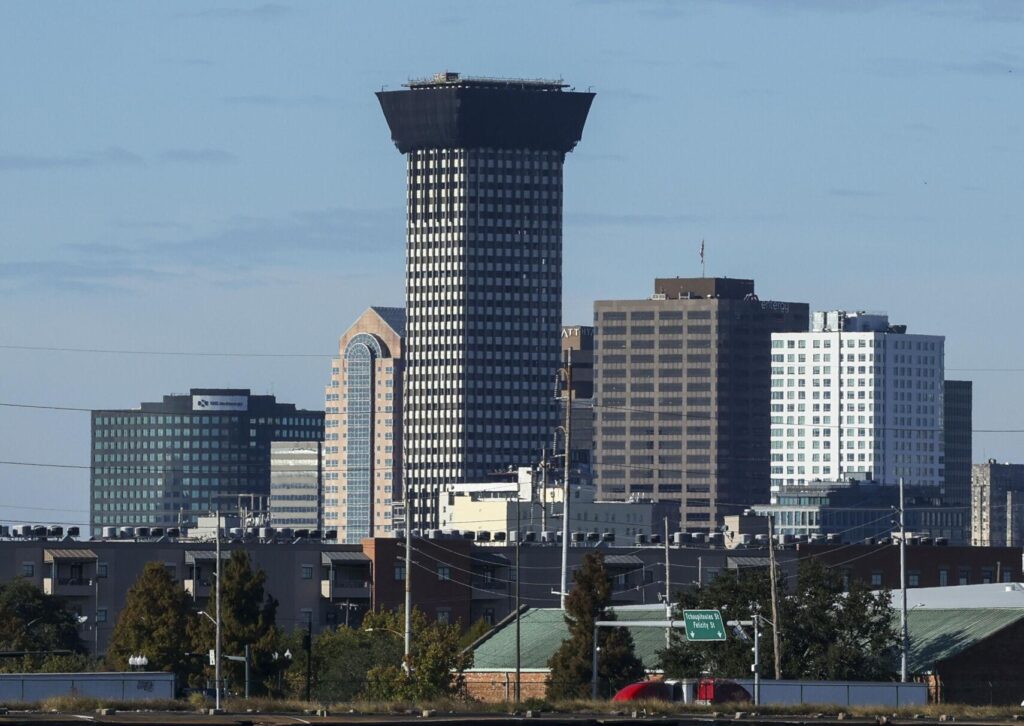(Nola) —
Money and resources in the New Orleans metro area are largely concentrated in White households, according to a new study.
Researchers at the Data Center found that though a wealth disparity between Black and White households is present nationwide, it is more acute in the New Orleans area’s eight parishes. Across the U.S., the typical White household has about six times the wealth of the average Black family. But in the New Orleans area, White families hold about 13 times the wealth of Black families, the study found in a first-of-its-kind analysis that looked at local wealth and national trends.
The wealth gaps could only further hinder wealth-building in marginalized communities over time, researchers say.
Minority households “disproportionately lack financial resources to grow businesses; to weather shocks from recessions, health care expenses, disasters, or unexpected job losses; to transfer economic and financial success across generations; to reap compounded returns on investment; and to reinvest their capital in under-resourced communities,” Data Center researchers Robert Habans and Haleigh Tomlin wrote.
Examining the data
Researchers pulled wealth estimates from U.S. Census income data. Though that data is compiled annually, the study was based on 2018 data before the COVID-19 pandemic disrupted data collection.
The analysis includes Orleans, Jefferson, Plaquemines, St. Bernard, St, Charles, St. James, St. John and St. Tammany parishes. It specifically examines local Black and White wealth, as sample sizes were too small in local Hispanic and Asian populations to draw reliable conclusions.
Researchers said they are hopeful the new data will bolster efforts to address and close the wealth gap. But that could be difficult, according to the study. Researchers found that even when Black families achieve the same wealth-building milestones as White families, such as earning a college degree or buying a home, White wealth still dramatically outpaces Black wealth.
“Black college graduates tend to have lower net worth than White college graduates at the same stage of life, researchers noted. “For Black householders aged 55 and older with a college degree, median net worth is comparable to that of White householders without a college degree.”
The study also found that lower property values in Black neighborhoods still stifle the wealth of Black homeowners. The median home value of owner-occupied homes in 2018, according to housing data from the federal government, was $120,000 for Black households but about $175,000 for White households.
In general, White residents are also far more likely to own their homes, the study noted. While fewer than half of Black families own their homes in the metro area, nearly two-thirds of White families own their homes.
Eyeing solutions
Tyronne Walker, vice president for policy, strategic partnerships and development for the Urban League of Louisiana said a crackdown on improper home valuations could be one of many ways state and local officials can help close the wealth gap.
About three years ago, the Urban League launched the See Change Collective, which aims to end the wealth gap for Black and Latino residents, he noted. If the effort is successful, the Urban League estimates the New Orleans metro could see an influx of $43 billion to its economy.
Realizing that Black homeowners often face discrimination in the home appraisal process — a problem noted in a 2021 study by Freddie Mac — the collective lobbied the former governor to add two Black appraisers to the state’s real estate appraisal board, appointments that Gov. Jeff Landry kept in place. The collective also supported changes to the apprenticeship process appraisers must complete to start work in the field, potentially opening the door to more minority appraisers to begin assessing home values.
Walker said that is the kind of policy work that can have immediate impact on wealth.
“I would appeal to folks to see this as something to be hopeful around, because we all know the fruits that it will bear in the end. … While the macro, it may be hard to see, the things that we’re talking about are not not that far off,” Walker said.
Andrea Boyles, a Tulane University associate professor of sociology and Africana studies, agreed that policy changes on homeownership, along with higher wages, can help address the wealth gap.
But: “The problem is that policies don’t create themselves,” she said.
She said political leaders often don’t appear motivated to address deep issues that affect Black families, pointing to attacks in recent years on how Black history is taught in schools and the dismantling of diversity, equity and inclusion efforts in colleges, among other harmful policy changes.
“Black folks are in the fight of their lives right now, just simply to maintain civil rights,” Boyles said. “The wealth gap, the educational gap, all of these things, these are simply the consequences of treating people, century after century, as deserving of less citizenry.”
